
The Enchanting Charm of Mohale's Hoek
Nestled in the scenic highlands of Lesotho, Mohale's Hoek is a captivating destination that offers a blend of natural beauty and rich cultural heritage. This small town, located in the southern part of Lesotho, is surrounded by rolling hills and lush valleys, making it a perfect getaway for nature lovers and adventure seekers alike. The picturesque landscapes provide ample opportunities for hiking, bird watching, and exploring the great outdoors. The town itself is a hub of local culture and history. Visitors can immerse themselves in the vibrant community life, experiencing local traditions and crafts. The markets are bustling with activity, where you can find unique handmade goods and sample traditional Basotho cuisine. The friendly locals are always eager to share stories and provide insight into their way of life. Mohale's Hoek is also a gateway to some of Lesotho's most stunning attractions. The nearby Maletsunyane Falls is one of the highest single-drop waterfalls in Africa, offering breathtaking views and thrilling abseiling experiences. Additionally, the Sehlabathebe National Park, a UNESCO World Heritage Site, is within reach for those looking to explore its diverse flora and fauna. Whether you're seeking adventure or tranquility, Mohale's Hoek has something to offer every traveler.
Local tips in Mohale's Hoek
- Visit the local markets early in the morning for the freshest produce and unique handmade crafts.
- Bring comfortable hiking shoes as the terrain around Mohale's Hoek is perfect for outdoor activities.
- Learn a few basic phrases in Sesotho to connect more deeply with the local community.
- Plan a day trip to Maletsunyane Falls for an unforgettable experience of one of Africa's highest waterfalls.
- Check the weather forecast before traveling, as the highland climate can be unpredictable.
The Enchanting Charm of Mohale's Hoek
Nestled in the scenic highlands of Lesotho, Mohale's Hoek is a captivating destination that offers a blend of natural beauty and rich cultural heritage. This small town, located in the southern part of Lesotho, is surrounded by rolling hills and lush valleys, making it a perfect getaway for nature lovers and adventure seekers alike. The picturesque landscapes provide ample opportunities for hiking, bird watching, and exploring the great outdoors. The town itself is a hub of local culture and history. Visitors can immerse themselves in the vibrant community life, experiencing local traditions and crafts. The markets are bustling with activity, where you can find unique handmade goods and sample traditional Basotho cuisine. The friendly locals are always eager to share stories and provide insight into their way of life. Mohale's Hoek is also a gateway to some of Lesotho's most stunning attractions. The nearby Maletsunyane Falls is one of the highest single-drop waterfalls in Africa, offering breathtaking views and thrilling abseiling experiences. Additionally, the Sehlabathebe National Park, a UNESCO World Heritage Site, is within reach for those looking to explore its diverse flora and fauna. Whether you're seeking adventure or tranquility, Mohale's Hoek has something to offer every traveler.
When is the best time to go to Mohale's Hoek?
Iconic landmarks you can’t miss
Hotel Mount Maluti
Discover the warmth of Lesotho at Hotel Mount Maluti, your comfortable retreat in the heart of Mohales Hoek’s stunning landscapes.

King Moshoeshoe I Royal Graves at Thaba Bosiu
Discover the historical significance and natural beauty of King Moshoeshoe I Royal Graves at Thaba Bosiu, a cultural gem in Lesotho.
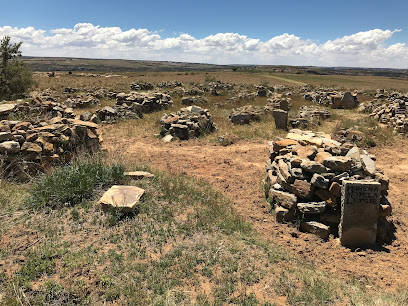
Gates of Paradise Pass
Explore the breathtaking Gates of Paradise Pass in Malealea, Lesotho, where stunning landscapes and rich cultural heritage come together.
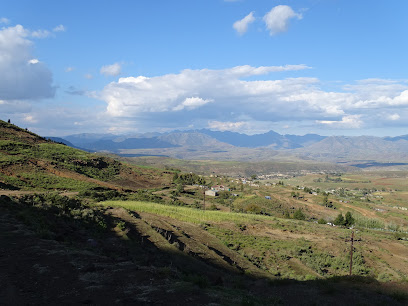
Old Hoek Guest House
Discover the serene beauty of Mpharane at Old Hoek Guest House, a charming retreat offering comfort, local hospitality, and stunning landscapes.
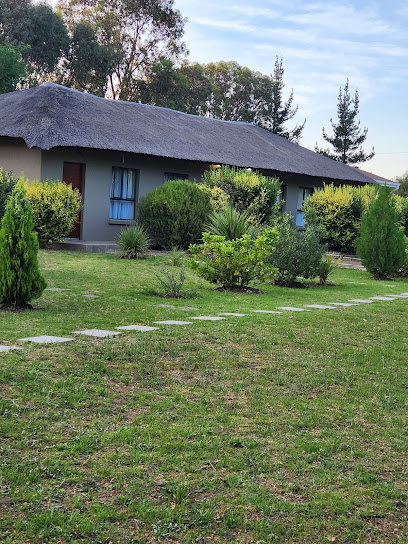
Dinosaur Footprints
Explore the ancient footprints of the Lesothosaurus at the Dinosaur Footprints in Moyeni Camp, a fascinating historical landmark for all ages.

Masitise Cave House and Museum
Explore the unique Masitise Cave House and Museum, a treasure of local history and culture in Masitise, showcasing the region's heritage through engaging exhibits.
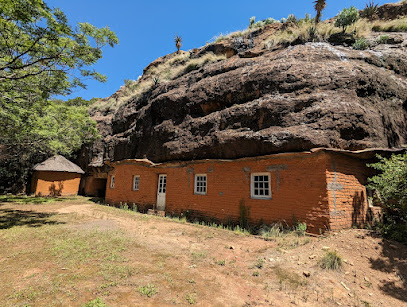
Mapalesa Guest House
Discover the charm of Lesotho at Mapalesa Guest House, a cozy hotel in Mohales Hoek perfect for relaxation and local adventures.
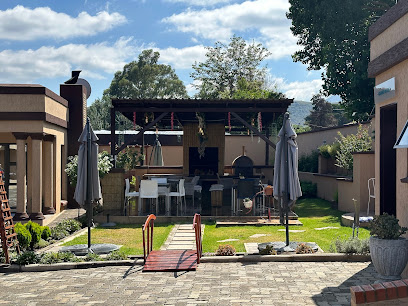
Qalakheng SDA Church
Explore the serene Qalakheng SDA Church, where spirituality meets community in the heart of Mohales Hoek, Lesotho.
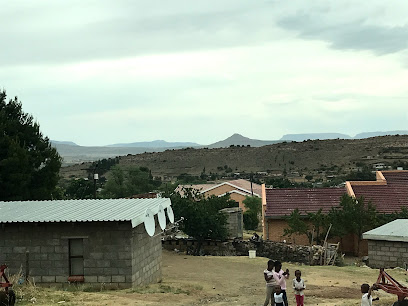
Makhaleng Bridge
Explore the enchanting Makhaleng Bridge, a historical landmark in Mohales Hoek, surrounded by breathtaking landscapes and local legends.
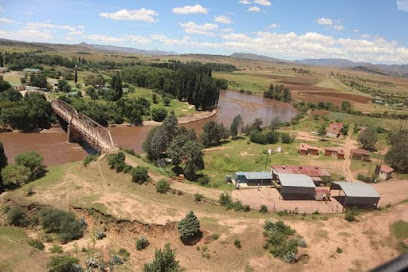
House of Prayer Mohale's Hoek
Discover peace and spirituality at the House of Prayer in Mohale's Hoek, a beautiful church that offers a tranquil escape and insight into local culture.

Mohale 's Hoek High School
Explore Mohale's Hoek High School, a vibrant educational hub reflecting the community spirit and cultural richness of Lesotho.
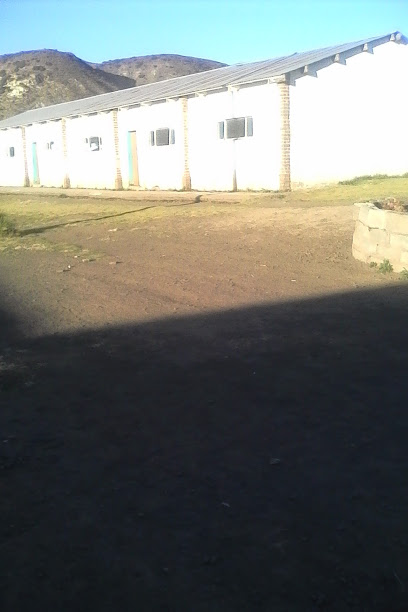
Puma Filling Station
Discover convenience and local charm at Puma Filling Station in Mohales Hoek, your essential stop while exploring the beautiful landscapes of Lesotho.
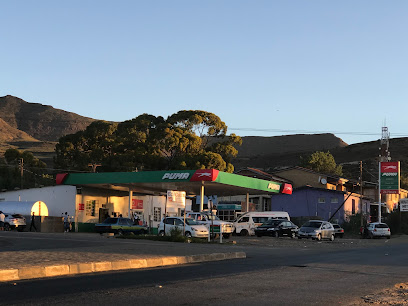
Mokhele
Experience the serene beauty and rich cultural heritage of Mokhele, a hidden gem in Mohales Hoek that invites you to explore its historic mission site.

Mohale's Hoek Airport
Experience the breathtaking beauty and unique culture of Lesotho while traveling through Mohale's Hoek Airport, your gateway to adventure.
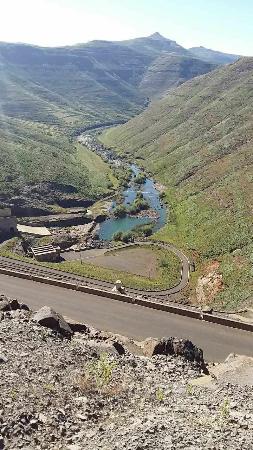
OK Furniture Mohales Hoek
Explore OK Furniture Mohales Hoek for an exquisite selection of quality furniture and home decor that embodies the spirit of Lesotho.
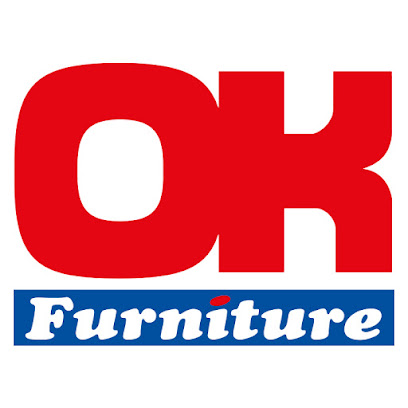
Unmissable attractions to see
Letseng la Letsie
Discover the serene beauty of Letseng la Letsie, a nature preserve in Lesotho, offering breathtaking landscapes and rich biodiversity.
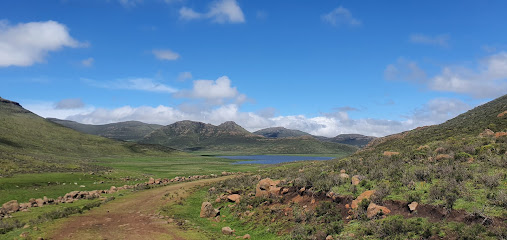
Masitise Cave House and Museum
Explore a unique cave dwelling and museum in Lesotho, built by a 19th-century missionary, showcasing local history and culture.
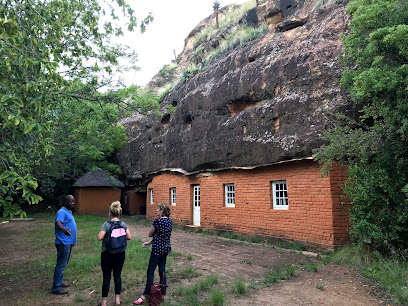
Southern most point of Lesotho
Discover Lesotho's southernmost tip: Breathtaking views, rich culture, and adventure in the heart of Southern Africa's mountainous kingdom.

Ketane Dinasoures Bone Collection
Explore prehistoric Lesotho at the Ketane Dinosaur Bone Collection in Ha Nohana, where ancient fossils bring the Jurassic period to life.
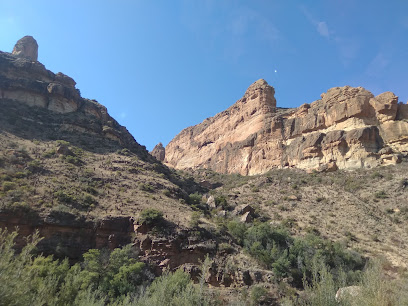
maletsunyane falls sight view
Experience the awe-inspiring Maletsunyane Falls in Lesotho: hike, abseil, and discover the rich culture of the 'Kingdom in the Sky'.
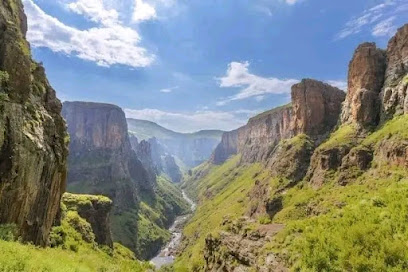
Royal Palace
Discover the beauty and cultural heritage of the Royal Palace in Matsieng, a must-visit tourist attraction steeped in history.
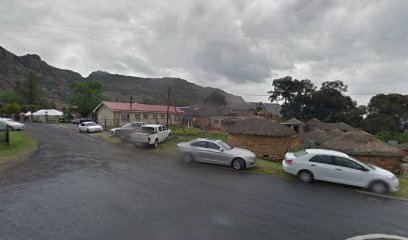
Mantsoepa Rocks
Explore the majestic rock formations and serene landscapes of Mantsoepa Rocks, a hidden gem in the heart of Lesotho's Mount Moorosi region.
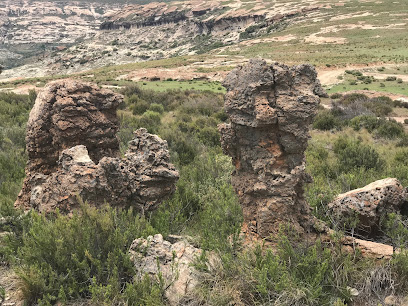
Mehloli AgriTourism Farm
Experience Lesotho's rural beauty at Mehloli AgriTourism Farm: Engage in farming, savor local flavors, and connect with nature.
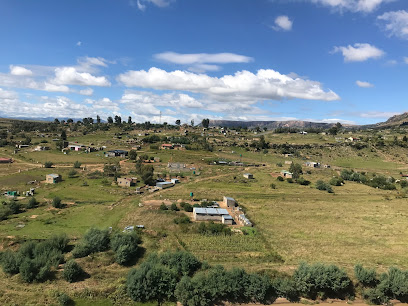
Libataolong
Discover Libataolong in Lekhoa, Lesotho: A breathtaking hiking paradise with trails for all levels of outdoor enthusiasts and nature lovers.

Botsoela Waterfall
Discover Lesotho's hidden paradise: Hike to the majestic Botsoela Waterfall near Malealea for breathtaking views and cultural immersion.

Maleka-Tsekoa Waterfall
Discover the majestic Maleka-Tsekoa Waterfall in Lesotho: a serene escape offering breathtaking views, hiking, and natural beauty.

Essential places to dine
KFC Mohale’s Hoek
Savor the taste of Lesotho at KFC Mohale’s Hoek – where comfort food meets local charm.
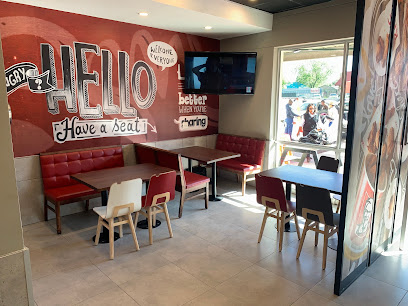
The Michi Grill
Experience authentic grilled cuisine at The Michi Grill in Mafeteng – where every meal is a celebration of local flavors.
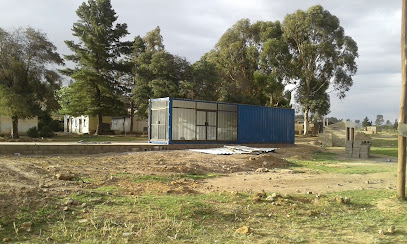
Mexican Snackbar
Experience authentic Mexican cuisine in Mohales Hoek at the vibrant Mexican Snackbar, where every bite takes you on a flavorful journey.
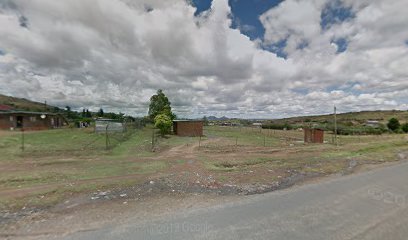
River-Side
Experience culinary delights by the serene riverside at River-Side in Nthamaha – where every meal is enhanced by nature's beauty.
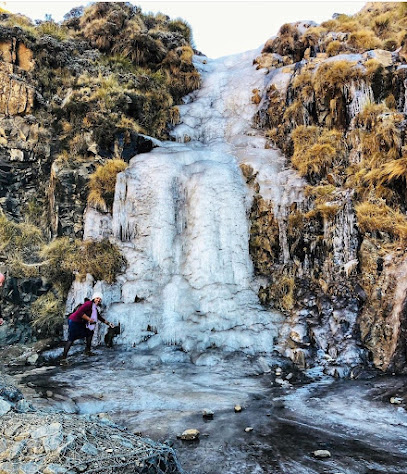
@MENUS
Experience the vibrant flavors of Lesotho at @MENUS, where every dish tells a story in Mohales Hoek.
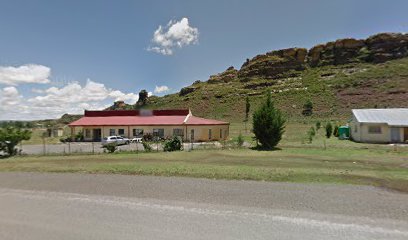
BUZY CORNER
Experience authentic Lesotho flavors at Buzy Corner in Mohales Hoek - where culinary tradition meets contemporary dining.
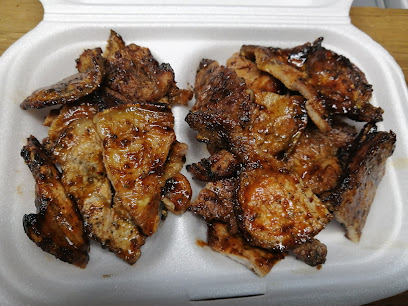
Kfc
Experience the taste of comfort food at KFC Mohales Hoek - where crispy fried chicken meets friendly service in the heart of Lesotho.
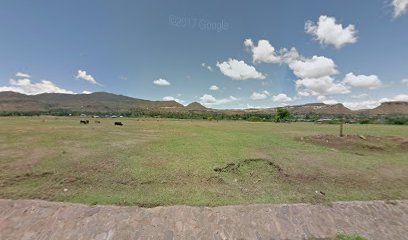
Wetsi'sville Bar & Restaurant
Experience authentic Basotho cuisine at Wetsi'sville Bar & Restaurant in Quthing - where tradition meets taste.
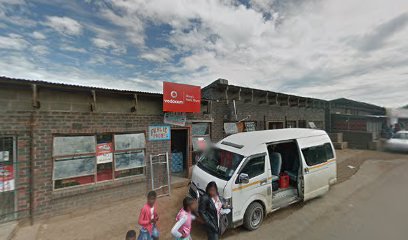
Lapeng Ha Ntate Sempe
Enjoy authentic local flavors at Lapeng Ha Ntate Sempe, the ultimate family-friendly dining destination in Thabaneng.
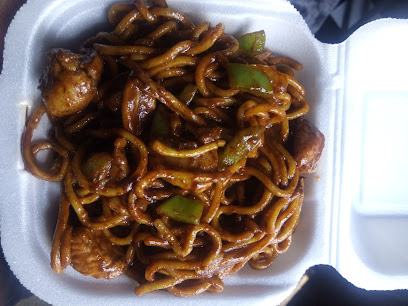
Numbers Cafe
Experience authentic Lesotho flavors at Numbers Cafe in Mount Moorosi – where local ingredients meet warm hospitality.
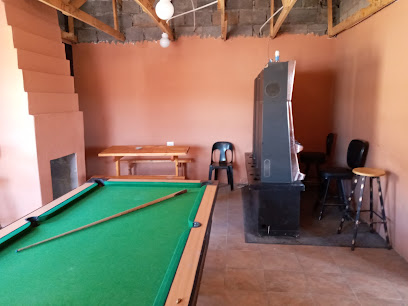
Kota Embassy
Discover Kota Embassy in Mohales Hoek - where delicious local snacks meet warm hospitality in a cozy setting.
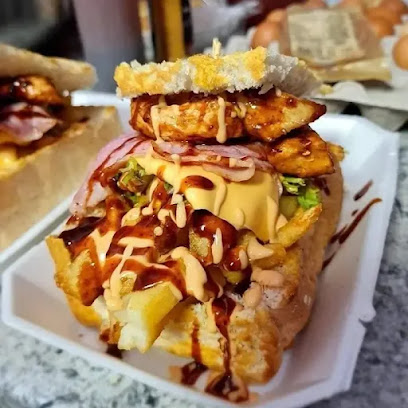
The Hut Diner
Discover authentic Lesotho cuisine at The Hut Diner in Mafeteng - where every meal tells a story.
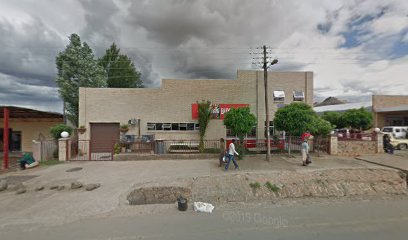
Butha_buthe
Experience authentic Basotho cuisine at Butha Buthe – where local flavors meet warm hospitality in the heart of Lesotho.

Markets, malls and hidden boutiques
Hotel Mount Maluti
Discover the serene allure of Hotel Mount Maluti in Mohales Hoek, where comfort meets breathtaking mountain views for an unforgettable stay.

Shoprite
Explore the vibrant offerings of Shoprite in Mohales Hoek, where local culture meets convenience in a delightful supermarket experience.
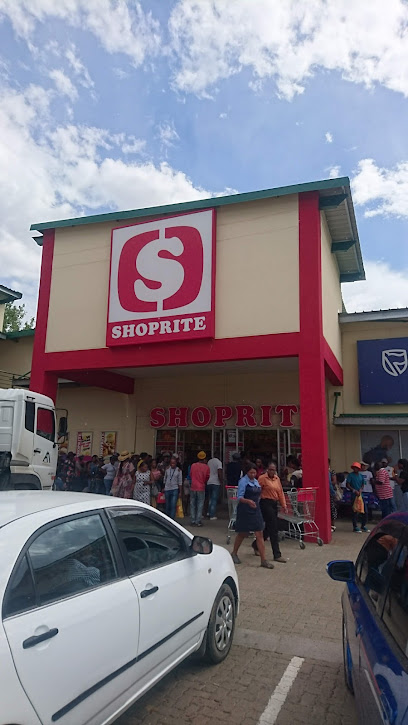
Mohlakeng Mohale's hoek (Cola General Dealer)
Experience local culture and essential goods at Mohlakeng Mohale's Hoek, a charming general store in the heart of Lesotho.
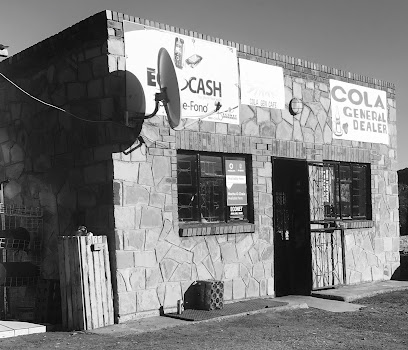
Cashbuild
Discover quality building materials and expert advice at Cashbuild in Mohales Hoek - your trusted partner for construction projects.
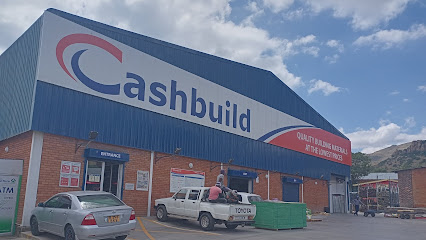
Mdlokovana Motor Spares & Tyres
Explore Lesotho's roads with confidence at Mdlokovana Motor Spares & Tyres, your trusted car accessories store in Mohales Hoek.
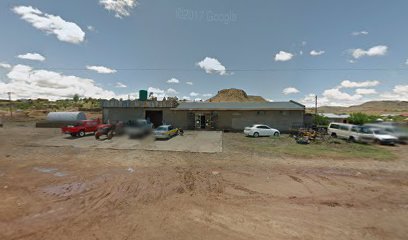
Jandrell Homestore
Explore Jandrell Homestore in Mohales Hoek for unique home goods that reflect the vibrant culture and craftsmanship of Lesotho.
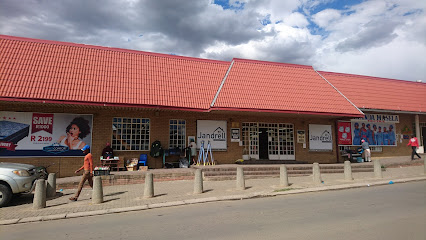
Mohale's Hoek Bus Stop
Discover the heart of Lesotho at Mohale's Hoek Bus Stop, where local culture meets vibrant community spirit.
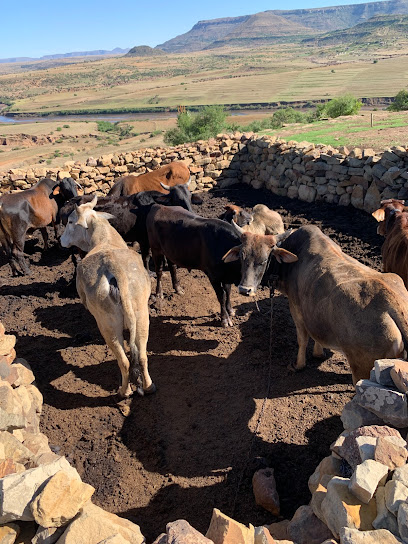
Mohale 's Hoek High School
Discover the cultural essence of Lesotho at Mohale's Hoek High School, a pivotal institution in the heart of the community.
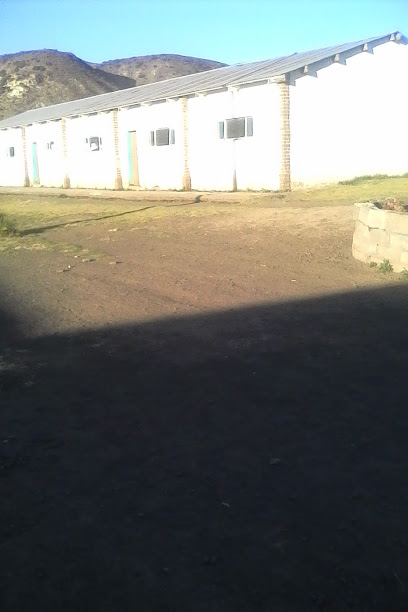
PEP Mohaleshoek Masoso Street
Shop for trendy clothing for all ages at PEP Mohaleshoek, the ultimate fashion destination in Mohaleshoek.
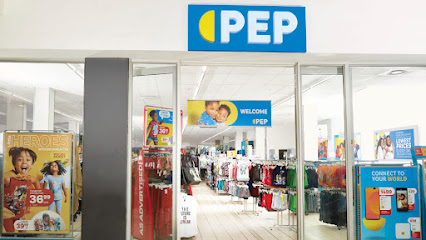
Mafoso Butchery
Discover the flavors of Lesotho at Mafoso Butchery - where quality meat meets local tradition in Mohales Hoek.
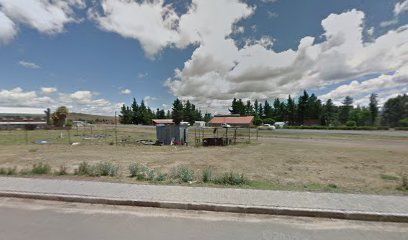
Alliance Complex
Discover shopping and local culture at Alliance Complex in Mohales Hoek, a vibrant destination for tourists seeking unique experiences.
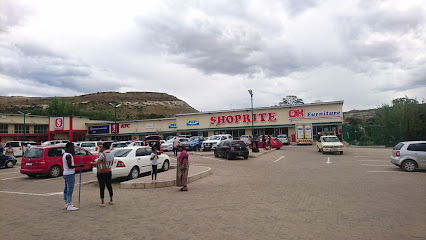
PEP Mohaleshoek
Explore affordable fashion for the whole family at PEP Mohaleshoek, where style meets savings in the heart of Mohales Hoek.
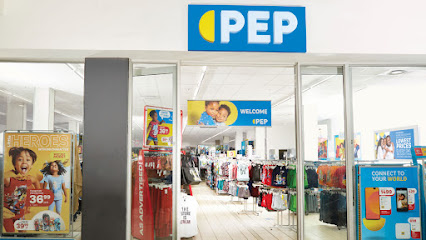
Dunns Mohaleshoek
Explore the finest men's and women's clothing at Dunns Mohaleshoek, a must-visit shopping destination in the heart of Mohales Hoek.

Mokhele
Explore Mokhele, a serene mission site in Mohales Hoek, where cultural heritage meets stunning landscapes for a unique travel experience.

Brakfontein
Explore Brakfontein in Mohales Hoek for authentic Lesotho crafts and local flavors, immersing yourself in the heart of Basotho culture.

Essential bars & hidden hideouts
Hotel Mount Maluti
Discover the scenic beauty and warm hospitality of Hotel Mount Maluti, your perfect getaway in the heart of Lesotho's mountains.

KFC Mohale’s Hoek
Enjoy the delicious taste of fast food at KFC Mohale’s Hoek, where comfort meets convenience in this vibrant Lesotho town.
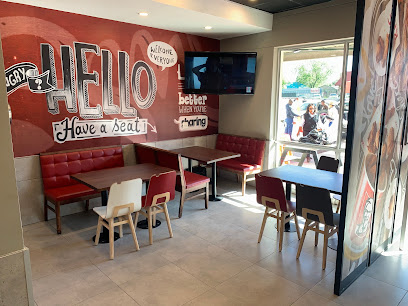
Mexican Snackbar
Experience authentic Mexican flavors in Mohales Hoek at the vibrant Mexican Snackbar, where every dish tells a story of tradition and taste.
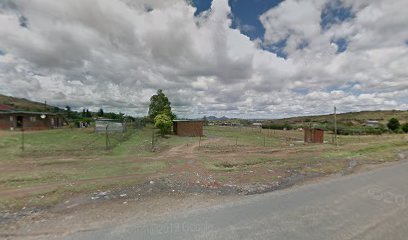
LaCasa Mohale's Hoek
LaCasa Mohale's Hoek: Your go-to bar for local flavors and a vibrant atmosphere in Mohale's Hoek.
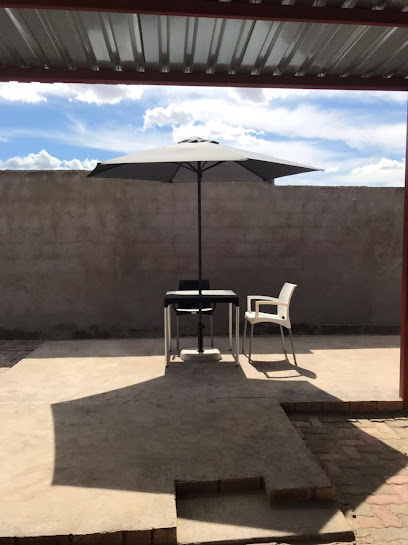
Lepelesana Tarven (Brakfontein, M/Hoek)
Experience the warm hospitality and vibrant culture at Lepelesana Tarven, a cozy bar in Mohales Hoek, perfect for relaxation and socializing.

Hakaphe
Discover the charm of Hakaphe, a cozy bar in Mohales Hoek, perfect for relaxing with friends and enjoying local drinks.
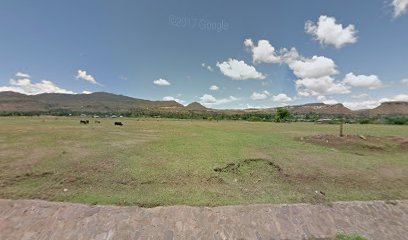
Mohale's Hoek Depot (Maluti Mountain Brewery)
Discover the rich brewing heritage at Mohale's Hoek Depot, where local flavors meet stunning mountain views in Lesotho.

BeerOnWheels Offsales
Experience the lively atmosphere and unique drink selection at BeerOnWheels Offsales in the heart of Mohales Hoek, Lesotho.
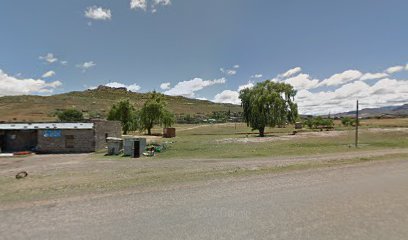
Bypass offsales
Discover the lively charm of Bypass Offsales in Mohales Hoek, a bar where locals and tourists unite over drinks and good times.
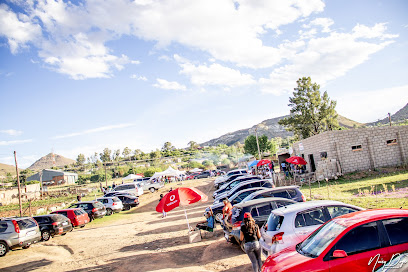
Harenyobaneng
Explore Harenyobaneng in Mohales Hoek for a vibrant bar experience featuring local brews and lively social scenes.
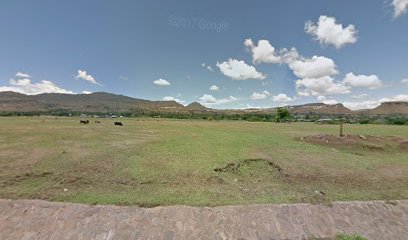
CoolDown Public Bar (Lwabe la ikisa)
Discover the vibrant atmosphere and local flavors at CoolDown Public Bar in Mohales Hoek, a perfect spot for relaxation and socializing.
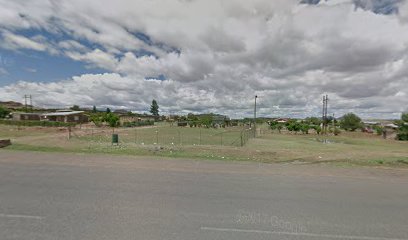
Makhoakhoeng Taven
Discover the lively Makhoakhoeng Tavern in Mohales Hoek, where you can enjoy local drinks and vibrant entertainment in a warm, welcoming atmosphere.
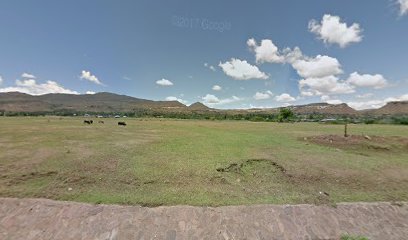
BUZY CORNER
Experience the rich culinary traditions of Lesotho at Buzy Corner, a must-visit restaurant in Mohales Hoek offering diverse and delicious dishes.
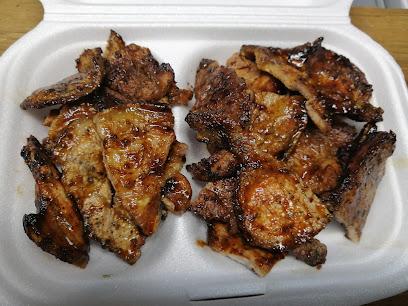
@MENUS
Experience the essence of Lesotho with diverse culinary offerings at @MENUS in Mohales Hoek, where local flavors meet modern dining.
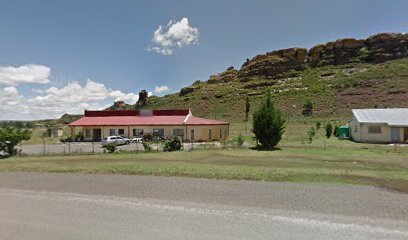
Local Phrases
-
- HelloLumela
[loo-meh-lah] - GoodbyeTsamaya hantle
[tsah-mah-yah hahn-tleh] - YesEa
[eh-ah] - NoChe
[cheh] - Please/You're welcomeKa kopo
[kah koh-poh] - Thank youKea leboha
[keh leh-boh-hah] - Excuse me/SorryKe kopa litaba
[keh koh-pah lee-tah-bah] - How are you?U phela joang?
[oo peh-lah jwah-ng] - Fine. And you?Ke phela hantle. Le u joang?
[keh peh-lah hahn-tleh. leh oo jwah-ng] - Do you speak English?Na u bua setsoalo?
[nah oo boo-ah set-soh-ah-loh] - I don't understandHa ke utloa
[hah keh oot-loh-ah]
- HelloLumela
-
- I'd like to see the menu, pleaseKe kopa ho shebella menyu, ka kopo
[keh koh-pah hoh sheh-behl-lah meh-nyoo, kah koh-poh] - I don't eat meatHa ke feta nyama
[hah keh feh-tah nyah-mah] - Cheers!Pholo e ntle
[poh-loh eh ntleh] - I would like to pay, pleaseKe kopa ho fumana, ka kopo
[keh koh-pah hoh foo-mah-nah, kah koh-poh]
- I'd like to see the menu, pleaseKe kopa ho shebella menyu, ka kopo
-
- Help!Bohloko!
[boh-loh-koh] - Go away!Hae!
[hah-eh] - Call the Police!Bula polase!
[boo-lah poh-lah-seh] - Call a doctor!Bula moruti!
[boo-lah moh-roo-tee] - I'm lostKe ile khothatsa
[keh ee-leh kho-tha-tsa] - I'm illKe tla feta
[keh tlah feh-tah]
- Help!Bohloko!
-
- I'd like to buy...Ke kopa ho rekisa...
[keh koh-pah hoh reh-kee-sah] - I'm just lookingKe sa tsebe
[keh sah tseh-beh] - How much is it?Ke bokae?
[keh boh-kah-eh] - That's too expensiveEna e tla khokha
[eh-nah eh tlah koh-khah] - Can you lower the price?Na u tseba ho phahamisa sephiring?
[nah oo tseh-bah hoh pah-hah-mee-sah se-peh-ring]
- I'd like to buy...Ke kopa ho rekisa...
-
- What time is it?Ke nako mang?
[keh nah-koh mah-ng] - It's one o'clockKe nako ya boholo
[keh nah-koh yah boh-hoh-loh] - Half past (10)Holimo ya lehae
[hoh-lee-moh yah leh-hah-eh] - MorningBoraro
[boh-rah-roh] - AfternoonMaseru
[mah-seh-roo] - EveningMoea
[moh-eh-ah] - YesterdayNaha
[nah-hah] - TodayNamuhla
[nah-moo-hlah] - TomorrowBoholo
[boh-hoh-loh] - 1Mokhoa
[moh-koh-wah] - 2Mei
[meh-ee] - 3Metsi
[meh-tsee] - 4Meraro
[meh-rah-roh] - 5Mehlano
[meh-lah-noh] - 6Mehato
[meh-hah-toh] - 7Mehlaba
[meh-lah-bah] - 8Mehlare
[meh-lah-reh] - 9Mehlano
[meh-lah-noh] - 10Mehlakore
[meh-lah-koh-reh]
- What time is it?Ke nako mang?
-
- Where's a/the...?Kae e...
[kah-eh eh...] - What's the address?Kae aterese?
[kah-eh ah-teh-reh-seh] - Can you show me (on the map)?Na u tseba ho nka?
[nah oo tseh-bah hoh n-kah] - When's the next (bus)?Ke nako e kae (bus)?
[keh nah-koh eh kah-eh (bus)] - A ticket (to ....)Litshebele tse...
[lee-tsheh-beh-leh tseh]
- Where's a/the...?Kae e...
History of Mohale's Hoek
-
Mohale's Hoek, located in the southern part of Lesotho, has a rich history that dates back to the early settlement of the Basotho people. The area, known for its fertile land and strategic location, became a hub for agricultural activities and community gatherings. Early settlers were drawn to the region due to its ample water supply from the nearby Makhaleng River, making it an ideal place for farming and livestock rearing.
-
In the 19th century, European missionaries began arriving in Lesotho, including Mohale's Hoek. Their arrival brought significant changes to the local culture and lifestyle. The Paris Evangelical Missionary Society established missions in the area, promoting Christianity and Western education. These missions played a crucial role in the development of the region, introducing new farming techniques and establishing schools that educated many local Basotho.
-
During the late 19th and early 20th centuries, Lesotho, then known as Basutoland, came under British control. Mohale's Hoek, like many other parts of the country, experienced the imposition of colonial rule. The British administration introduced new governance structures and infrastructure projects, including road construction and administrative buildings. This period also saw the introduction of cash crops, which changed the economic landscape of the region.
-
Mohale's Hoek played a significant role during the Basotho Wars in the late 19th century. These conflicts were primarily between the Basotho people and the British colonial forces. The strategic location of Mohale's Hoek made it a critical area for both defense and supply routes. The local population showed resilience and tactical acumen, contributing to the eventual preservation of Basotho sovereignty and identity.
-
Lesotho gained independence from Britain in 1966, and Mohale's Hoek began to see rapid development. The post-independence government focused on improving infrastructure, healthcare, and education in the region. Mohale's Hoek became a district capital, further boosting its administrative and economic significance. Various development projects were initiated, including the construction of new schools, hospitals, and roads, which improved the quality of life for its residents.
-
Mohale's Hoek is not only a historical landmark but also a cultural hub. The region is known for its vibrant Basotho traditions, including the famous 'mokorotlo' hat, traditional music, and dance. Local festivals and ceremonies, such as the annual 'Morija Arts & Cultural Festival,' showcase the rich cultural heritage of the Basotho people. Traditional crafts, including pottery and weaving, are still practiced, preserving ancient skills and contributing to the local economy.
-
Today, Mohale's Hoek is a blend of historical legacy and modern development. The town continues to grow, with new businesses, educational institutions, and healthcare facilities being established. Despite modernization, the residents of Mohale's Hoek maintain a strong connection to their cultural roots. The area remains a testament to the resilience and adaptability of the Basotho people, offering visitors a unique glimpse into both the past and the present of Lesotho.
Mohale's Hoek Essentials
-
Mohale's Hoek is accessible by road from Maseru, the capital of Lesotho, which is approximately 120 kilometers away. The journey can be made by car or by taking one of the regular minibus services known as 'kombis.' The drive usually takes around 2 hours. There are also occasional bus services from other major towns in Lesotho. If you are flying in, the nearest international airport is Moshoeshoe I International Airport in Maseru.
-
Within Mohale's Hoek, transportation options include minibuses and taxis. Minibuses are the most common and cost-effective way to get around, but they can be crowded and may not adhere to a strict schedule. Taxis are available and can be hailed on the street or arranged through your accommodation. Renting a car is another option, particularly if you plan to explore the surrounding areas at your own pace.
-
The official currency in Lesotho is the Lesotho Loti (LSL), although South African Rand (ZAR) is also widely accepted. Credit cards are accepted in some hotels, restaurants, and larger shops, but it is advisable to carry cash, especially in smaller establishments and rural areas. ATMs are available in Mohale's Hoek, but it is wise to withdraw sufficient cash in Maseru to ensure you have enough funds.
-
Mohale's Hoek is generally a safe destination, but it is important to take standard precautions. Avoid walking alone at night, particularly in poorly lit areas. Petty crime such as pickpocketing can occur, so keep an eye on your belongings in crowded places. There are no specific high-crime areas targeting tourists, but it is always best to stay vigilant and aware of your surroundings.
-
In case of emergency, dial 112 for immediate assistance. The local police station and medical facilities are available in Mohale's Hoek. It is recommended to have travel insurance that covers medical emergencies. For minor health issues, there are pharmacies in the town where you can purchase over-the-counter medications.
-
Fashion: Do dress modestly, especially when visiting religious sites. Avoid wearing overly revealing clothing. Religion: Do respect local customs and traditions. Always cover your head when entering religious establishments. Public Transport: Do be respectful and give up your seat to elderly passengers. Don't eat or drink on public transport. Greetings: Do greet people with a handshake. A slight bow of the head is also a sign of respect. Eating & Drinking: Do try local delicacies and accept food offerings graciously. Don't refuse hospitality, as it is considered impolite.
-
To experience Mohale's Hoek like a local, visit the local markets where you can buy fresh produce and traditional Basotho goods. Engage with locals, as they are often friendly and willing to share stories about the town's history and culture. Don't miss visiting the Mohale's Hoek Dam and the surrounding natural beauty. For a unique experience, try participating in a traditional Basotho dance or music event.
Trending Landmark in Mohale's Hoek
-
Hotel Mount Maluti
-
King Moshoeshoe I Royal Graves at Thaba Bosiu
-
Gates of Paradise Pass
-
Old Hoek Guest House
-
Dinosaur Footprints
-
Masitise Cave House and Museum
-
Mapalesa Guest House
-
Qalakheng SDA Church
-
Makhaleng Bridge
-
House of Prayer Mohale's Hoek
-
Mohale 's Hoek High School
-
Puma Filling Station
-
Mokhele
-
Mohale's Hoek Airport
-
OK Furniture Mohales Hoek
Nearby Cities to Mohale's Hoek
-
Things To Do in Quthing
-
Things To Do in Mafeteng
-
Things To Do in Maseru
-
Things To Do in Teyateyaneng
-
Things To Do in Thaba-Tseka
-
Things To Do in Leribe
-
Things To Do in Bloemfontein
-
Things To Do in Butha-Buthe
-
Things To Do in Mokhotlong
-
Things To Do in Kimberley
-
Things To Do in East London
-
Things To Do in Durban
-
Things To Do in Johannesburg
-
Things To Do in Pretoria
-
Things To Do in Malkerns






